If you like listening to podcasts, the odds are you’ve dreamt of starting your own one day. Luckily, starting a podcast with no audience doesn’t have to be a pipedream.
Anyone can start a podcast show and start making money doing something they love.
The podcast industry continues to grow every year, as more people prefer listening to podcasts instead of reading the news or a story.
If you want to start a podcast with no audience, you’ve come to the right place.
In this article, we’ll discuss how you can start a podcast with no audience this year.
Let’s get started!
Table of Contents
10 Easy Steps on How to Start a Podcast with No Audience
Starting a podcast is very exciting! But we want to make sure it’s successful.
So follow these 10 steps to get started.
1. Choose a Podcast Topic
To start a podcast, you need something to talk about. Sure, you can start a podcast and talk about anything you want, but it’s typically best to be able to become an expert voice on a topic you enjoy.
Before you pick a podcast niche or topic, you should know what people are listening to.
First off, people listen to podcasts to learn about a topic. For example, there are true crime podcasts for people to learn about crime.
Luckily, you don’t have to be a detective to talk about crime, but you do need to have some background that makes you a qualified source to start building trust with your audience.
No matter what you choose to podcast about, you should have good knowledge about the niche and subject matter. Of course, the best place to start is with your passions.
For example, if you’re someone who has always enjoyed skateboarding, your podcast might be about skateboarding.
Look at popular podcasts to get inspiration and ideas to see what has worked in recent years but do not copy them.
And here are some costly legal mistakes to avoid when starting a podcast with no audience or any other digital business:
2. Choose a Podcast Title
Just like a popular blog, podcasts need titles for your audience and fans to identify you.
A title or podcast’s name can help someone looking for a podcast determine what your podcast is about. You should put thought into the title of your podcast so your listeners can easily find you. Always choose a title your target audience will recognize. You should also consider how your ideal listener will find you.
For example, if your video is about true crime podcast, consider what someone will type into search engines like Google. Someone looking for a new true-crime podcast to listen to will most likely type “true-crime podcast” into Google to find one, and hopefully, your podcast will show up.
Your title should also be recognizable on social media profiles and allow you to use a handle that’s simple and easy to remember.
Here are considerations when naming your podcast:
Cleverness
A title should be catchy and understandable. Being too clever could mean people can’t decipher what your podcast is about. However, not being clever enough might make your podcast seem boring.
Descriptiveness
Your podcast title should be descriptive enough that someone knows what your podcast will be about without having to listen to it.
Your Name
If you have a large audience or following before starting a podcast, you can simply use your name to title your podcast. That could be your brand identity.
This method only works for individuals who have some type of fame, including social media fame. If your name is recognizable and enough people are searching for it on Google, then your name could be a great title for your podcast.
3. Write a Podcast Description
To have a successful podcast, you should be able to accurately describe what your podcast is about and why people should listen to it.
You’ll have to write a description for your podcast to help people learn more about what you’ll be talking about on your show.
Use this AI tool to create a good description that’s captivating for your potential audience. When you start a podcast with no audience, you need all the help you can get!
A good description will entice and convince listeners to tune into your podcast, while a bad description might scare potential listeners away. If your description isn’t clear, then you might lose potential listeners who can’t determine what the podcast is about from the title or description.
Sign up for an About page FREE template below to get some ideas!
4. Protect Your Podcast Legally
When you have your own podcast, you are creating great content as business owners.
So you need to know how to legally protect your podcast too.
Here are the 4 most important podcast contracts you’ll need:
Podcast Guest Release:
The first thing you’ll need is a Podcast Guest Release with your podcast guests.
This agreement allows you to get permission from guests to use their likeness, voice or video in your podcast. You need this written agreement to avoid any legal issues down the road.
Podcast Sponsorship Agreement:
The next step is to get sponsors for your podcast and for that, you’ll need a Podcast Sponsorship agreement.
Sponsorships are a great way to monetize your podcast and bring in revenue.
However, without a proper agreement in place, you may run into issues with sponsors not fulfilling their obligations or not compensating you appropriately.
Podcast Co-Host Agreement:
Working with a co-host on your podcast can bring new perspectives and energy to your show.
However, it’s important to have a clear agreement in place to avoid any misunderstandings or conflicts in the future.
Both the podcast host and co-host need to be on the same page in terms of content creation, ownership of content, payments, division of responsibilities, and more.
Podcast Production Agreement:
You would use this agreement with your producers. If you are working with a podcast producer, it’s important to have a clear understanding about the production process and ownership of the final product.
The good news is that this podcast legal bundle (written by a lawyer) gives you all the podcast legal templates above and everything you need to get started!
Watch this video to learn more!
Podcast Disclaimer:
While it’s not a contract, a podcast legal disclaimer is a very important statement that you post to avoid legal liability.
I’m sure you must have seen these or heard about them.
No matter what niche your podcast is about, you should always protect yourself with a proper disclaimer in place.
5. Plan Your Podcast Episodes
When thinking about starting a podcast with no money, one of the most important steps is to plan your podcast episodes ahead of time!
Planning your episodes ensures you always have a topic covered on your podcast.
Once your podcast takes off and you have a loyal audience, planning can also help you determine which sponsors are right for which episodes and schedule interviews with experts ahead of time.
All podcasts including video podcasts must be preplanned to ensure the quality of your show is consistent.
For example, if you make a special episode about health and wellness you may look into having Tru Niagen as your sponsor, or if you are having an episode that is a continuation of your last, find a company that best fits your niche.
When planning episodes, you can choose between several different podcast formats, including:
Interview-Style Podcast
Many podcasts include interviews with other industry experts by introducing listeners to someone who has interesting insight into the topic.
Interview-style podcasts don’t have to be scripted, but it’s a good idea to write down your questions.
Current Events
Many successful podcasts cover current events about the topic they’re covering. You can include any news you feel is relevant to your listeners.
This is a great way to start a podcast with no audience.
Multi-hosts or Co-Host to Bring Fresh Perspective
By inviting someone else on your show to be a co-host, you can offer free-flowing conversation throughout your podcast.
Ask another industry expert or someone who also has a podcast to come on your show now and then to help you host.
A co-host can help a podcast host with sharing the burden and lots of tasks such as market research, content creation, getting guest appearances scheduled, editing or posting on social media channels.
Just make sure to have this lawyer approved Co-host agreement in place to avoid conflicts and disagreements.
Pro Tip on How to Start a Podcast with No Audience:
Before inviting guests on your podcast, make sure they sign this Podcast release form, which allows YOU to freely use their name, photos, audios, and videos legally on your podcast and business marketing! Otherwise, you risk losing lots of money in legal violations.
Related Post: How to Pitch a Podcast (17 Best tips with Templates)
6. Get a Hosting Provider
Now that you’ve planned well enough to start your podcast with no audience or money, you’ll need a hosting provider that makes your podcast visible online.
A hosting company allows you to store files and provide listeners with access to your podcast so they can download and subscribe. Here’s the hosting company that I personally use and love!
Hosting platforms have different features, but they all allow you to store audio files and charge using a subscription fee.
7. Make a Podcast Recording
Once you’re ready to start your podcast, it’s time to start recording. You can create a script to follow or allow for free-flowing conversation, depending on the podcast format you’ve chosen.
Of course, you should also be prepared with the right recording equipment, including:
Using these tools will improve your audio quality to reach a broader audience.
8. Publish Your Podcast Episode
Once you’ve recorded an episode, you’ll need to publish it after you’ve edited it how you want. To publish your podcast, you have to convert it to MP3 and tag it with metadata, including your podcast name, logo, and description. If your podcast has a website, you should also include the URL.
Make sure you only use royalty-free music to avoid copyright infringement and there should be no distracting background noise.
When you’re ready to officially publish your podcast, you’ll upload it to the hosting service you chose. The hosting provider links your podcast with directories, including Apple podcasts and Google podcasts.
9. Submit the Podcast to Directories
Once your podcast is published, you’ll select a directory where listeners can find and listen to podcasts. You’ll need to post an RSS feed link that you’ll receive from the hosting service to any podcast directories you choose.
10. Leverage Social Media Platforms
When starting a podcast with no audience, you need to take into account social media platforms.
If you’re passionate about a particular topic and want to share your knowledge with the world, starting a podcast is a great way to do it. But what if you don’t have an audience? How can you get started and grow your show?
If you have an existing social media following, use it to promote your podcast. Share your episodes on your personal page and in relevant groups, and make sure to include a link to your show’s website or iTunes page.
This is a great idea to get the word out and attract new listeners. Make sure to also share the new podcast episode with your email list. So your email marketing should include your new episodes to build your podcast audience.
Also, grab this FREE legal guide below to avoid making the 3 most common mistakes entrepreneurs and podcasters make:
How to Grow a Podcast from Nothing?
Growing a podcast from nothing can be a daunting task, but it is definitely possible with dedication and hard work.
First, follow the steps above to start a podcast with no audience, and then to grow it further, check out these tips:
1. Define Your Niche
The first step to growing a successful podcast is to define your niche.
This refers to the specific topic or theme that your podcast will focus on.
Choosing a niche is important because it helps you attract and retain listeners who are interested in that particular topic.
It also helps you stand out in a saturated market. Consider your passions, expertise, and what you think will appeal to your target audience when choosing a niche for your podcast.
2. Create Quality Content
Once you have defined your niche, the next step is to create quality content for your podcast.
This includes planning and scripting your episodes, as well as recording and editing them to a high standard.
Your content should be engaging, informative, and entertaining to keep your listeners hooked.
In addition, consistency is key when it comes to growing your podcast. Have a set schedule for releasing new episodes, whether it’s weekly or bi-weekly, and stick to it.
3. Utilize Social Media
Social media is a powerful tool for promoting your podcast and reaching a wider audience.
Make sure to create social media accounts for your podcast on platforms like Twitter, Instagram, and Facebook.
Use these platforms to share updates about your podcast, behind-the-scenes content, and teasers for upcoming episodes. Interact with your followers and use relevant hashtags to reach potential listeners.
4. Collaborate with Other Podcasts
Collaborating with other podcasts in your niche is a great way to grow your audience.
This can include guest appearances on other podcasts, cross-promotion, or even creating joint episodes.
It allows you to tap into the existing fanbase of other podcasts and gain exposure to new listeners. Reach out to other podcasters and explore potential collaborations that can benefit both parties.
5. Engage with Your Audience
Engaging with your audience is crucial for building a loyal following for your podcast.
Encourage listeners to leave reviews, ratings, and comments on your episodes. Respond to these interactions and use them as feedback to improve your content.
Can you do a Podcast without Guests?
Yes, you can! I have listened to several podcasts without guests.
But keep in mind that solo podcasts will require a little more work to keep them captivating!
You can fully express your thoughts, expertise, and creativity without relying on the schedules and availability of guests. So you have complete control over the content, pace, and direction of each episode.
But having guests will make it easier to provide educational content in an engaging and informative way. Ultimately, this will depend on your style and preference whether you love sharing your own stories on the podcast or enjoy featuring and interviewing guests.
Final Thoughts on Starting a Podcast With No Audience
Honestly, one of the best things about starting a podcast is that there’s no audience in the early days! That means you can focus completely on creating high-quality content, without worrying about what your listeners think.
This allows you to really experiment with different types of podcast content and styles, helping you to find out what resonates most with your target audience.
Just remember to consistently promote your podcast and engage with your listeners, so that you can gradually build an audience over time.
With the right approach, starting a podcast with no audience can be a great way to establish yourself as an authority in your niche and reach more people.
The most important thing is to protect your hard work and build a successful show legally by using proper contracts from the very beginning.
The best podcasts know the importance of securing their intellectual property and maintaining ownership of their content, which can amount to thousands of hours of work.
So grab our Podcast legal bundle here to start your journey off on the right foot.
HERE ARE THE TOP BUSINESS TOOLS AND RESOURCES THAT YOU’LL NEED FOR STARTING A PODCAST
- AI writing tool to write podcast descriptions, and blog posts 10x faster, create social media content, videos, and any kind of content to save time!
- This all-in-one business platform you’ll need to run your podcasting business online
- Guest Blogger Agreement to publish guest posts on your website legally and avoid any copyright infringement, Media release agreement to be able to use other people’s photos, videos, audio, and any other content legally, Privacy policy on your website to ensure your blog’s legal compliance, Disclaimer to limit your legal liability, Terms and Conditions to set your blog rules and regulations! Get all of these templates at a discounted rate in one of my best-selling VIP legal bundle here.
- Free SEO Masterclass to learn how to optimize your blog posts for SEO to rank on Google. You can also buy this awesome bundle of ebooks instead if you prefer ebooks over video training.
- If you’d like your podcast to rank on the first page of Google then I highly recommend this amazing tool.
- Learn how to get traffic to your blog through Google web stories here.
- Millionaire blogger’s secrets here and tons of valuable resources.
- How to start your blogging business and make money online
- How to make money from affiliate marketing
- How to manage your business finances? Use this tool to stay organized.
- Outrank your competition and enhance your content creation
- This SEO tool to make sure your blog posts rank on the first page of Google
- Best accounting software to manage profit and loss and more!
- How to Legally Protect Your Book (with Proper Copyright Notice and Disclaimer Examples)
Let me know if you have any questions, and comment below to let me know which podcasting tip appealed to you.
And here are 7 must-have legal contract templates for your podcasting business (and don’t forget to subscribe to my channel):
RELATED BLOG POSTS ON HOW TO START A PODCAST WITH NO AUDIENCE
In addition to learning how to start a podcast with no audience, join our Facebook group here for more inspirational content.
You should check out the following blog posts next:
- 7 Best Planners for Bloggers and Podcasters
- Online Course Agreement Template (for course creators and podcasters)
- Lawyer’s Guide to ADA Website Compliance – Use this checklist
- 6 Essential Business Contracts Every Entrepreneur Needs and Why
- CCPA Compliance for Your Website
- Hosting a giveaway? Learn all about Sweepstakes Rules and grab your Sweepstakes Terms and Conditions template here
- Are you accepting guest posts on your website? Learn how to protect yourself!
- What other legal contracts should you have? Check these 16 DIY Legal Templates
- Want to use someone’s photos, testimonials, or videos legally? You need this Media Release Agreement.
- Want to start your own affiliate program or already have one? Protect yourself with an Affiliate Agreement
- 50 Bloggers Like You Reveal Why Free Legal Templates DON’T Protect Your Online Business
- Protect Your Business Secrets With a Confidentiality Agreement
- Looking to hire a freelancer or provide freelance services of your own? This is the Freelance Contract You Need!
- Everything You Need to Know About Blog Disclosures and Disclaimers (with Examples)
VISIT THIS FREEBIES PAGE TO GET 5 AWESOME FREE BUSINESS, BLOGGING AND LEGAL TIPS!
Don’t forget to join my awesome Facebook group with over 8,000 incredible entrepreneurs to be part of a community in your blogging journey to share personal experiences and get professional blogging help.
You’ll be welcomed into this supportive group with bloggers, business owners, and go-getters. Plus, you’ll get helpful legal, blogging, and business tips for free.
Guest Writer:
Marné Amoguis holds a B.A. in International Business from UC San Diego. She is a contributing writer at 365businesstips.com where she loves sharing her passion for digital marketing. Outside of writing, she loves traveling, playing music, and hiking.

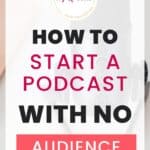



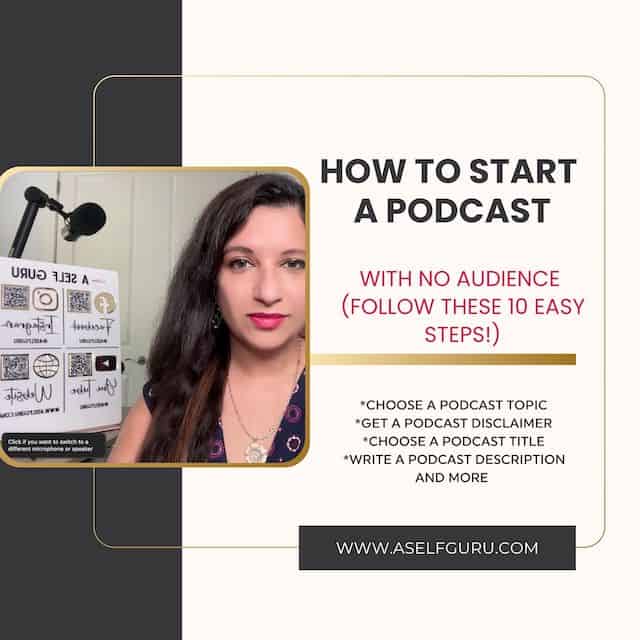
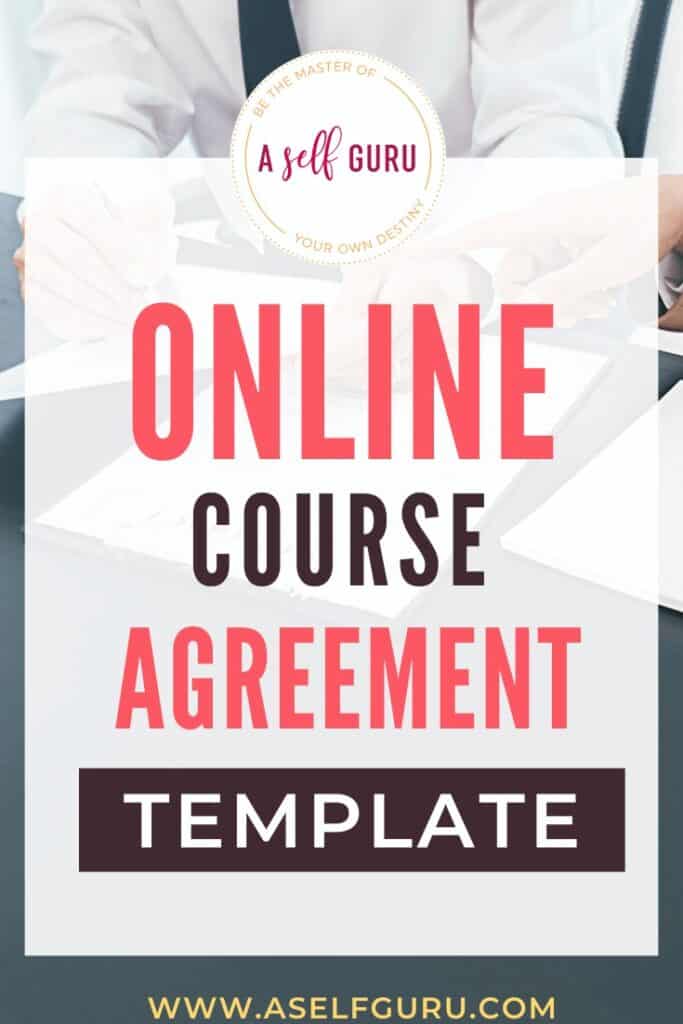
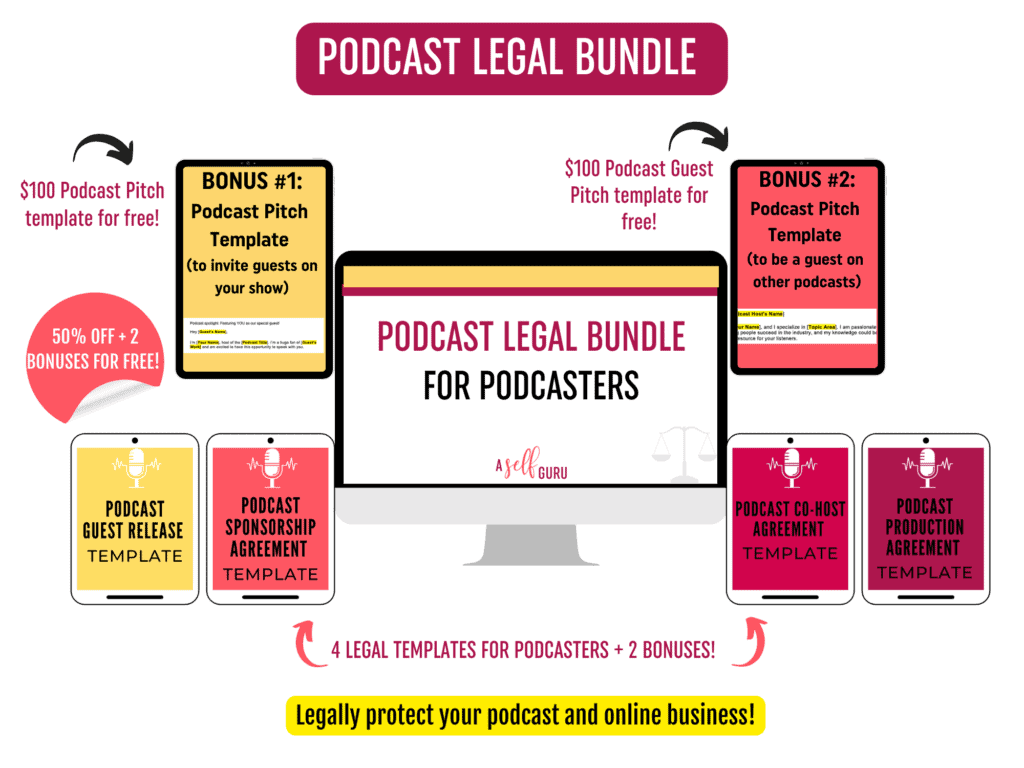

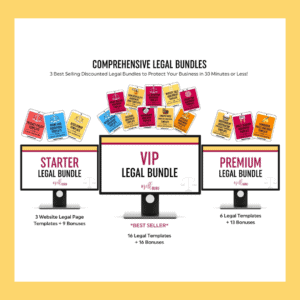
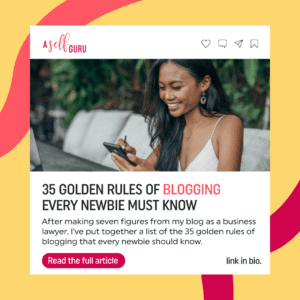
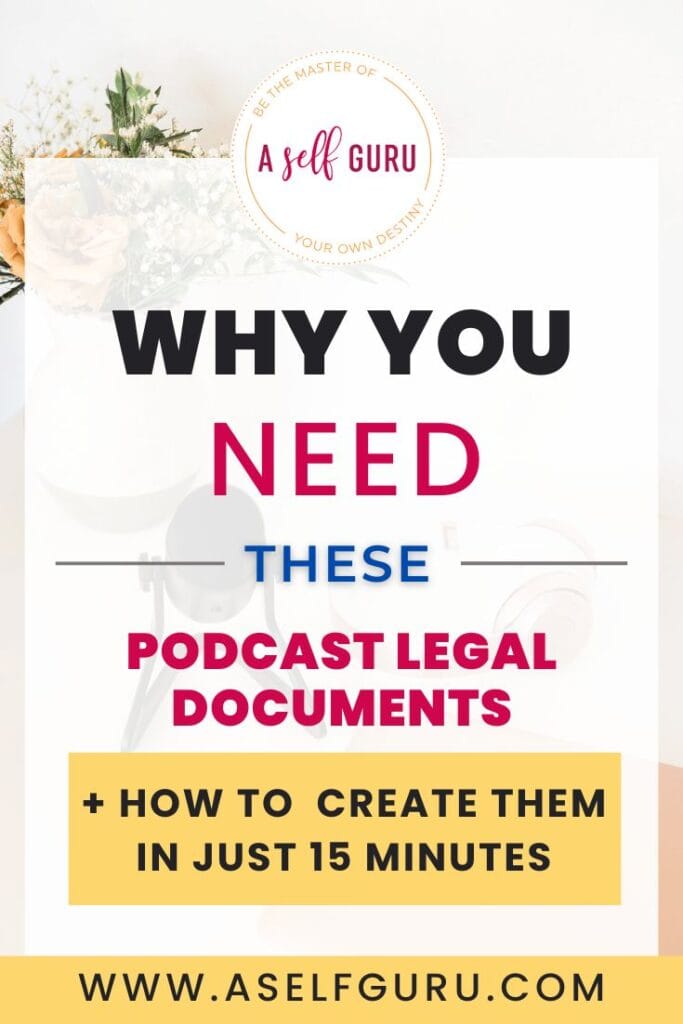
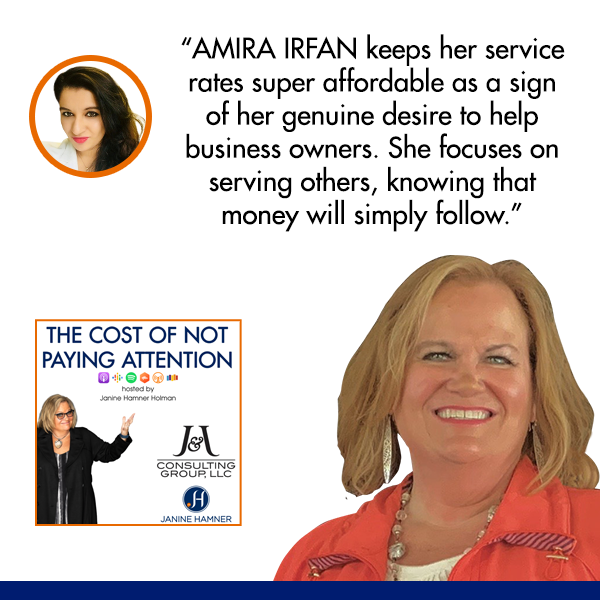
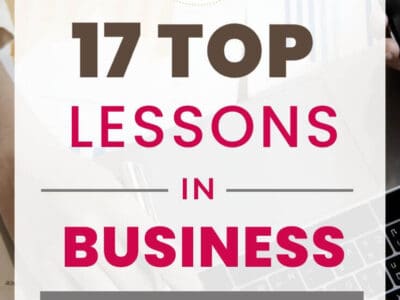

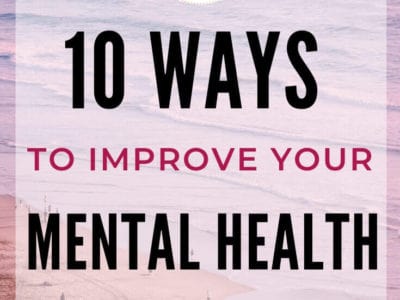
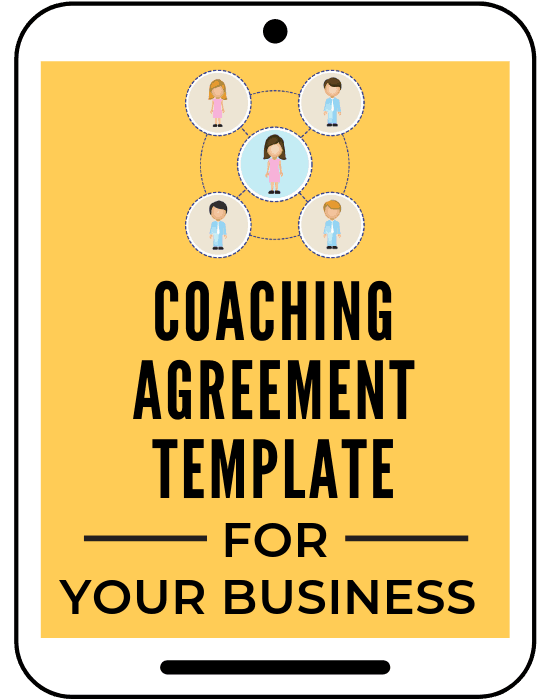





I love podcasting better than blogging
That’s great!